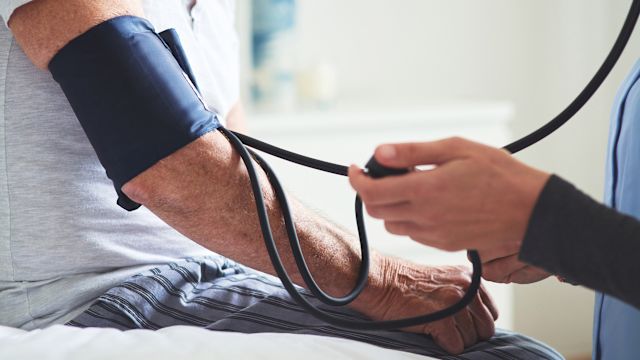Updated on December 9, 2025
Respiratory syncytial virus (RSV) is one of the most common causes of respiratory infections worldwide. The virus has received much attention for the severe illness that it can cause among infants and young children—especially those who were born pre-term. The virus can also lead to severe illness among adults, especially those ages 50 and older and those who are living with certain chronic health conditions, including cardiovascular disease.
What is cardiovascular disease?
Sometimes referred to as “heart disease,” cardiovascular disease (CVD) refers to a group of conditions that affect the functioning of the heart and blood vessels. Common examples include:
- Coronary artery disease: Plaque buildup in the coronary arteries restricts blood flow to the heart and can lead to heart attacks.
- Hypertension: Also known as high blood pressure, it often causes no symptoms but can increase the risk of heart attack, stroke, and kidney failure.
- Heart failure: This is a condition where the heart is unable to pump enough blood to meet the body's needs, causing symptoms that can include fatigue, shortness of breath, and fluid retention.
Cardiovascular disease is one of the most common chronic illnesses in the United States. It is also the leading cause of death among U.S. adults.
Cardiovascular disease and severe RSV
People with cardiovascular disease are at a higher risk of severe RSV infections. They are more likely to have an infection that results in hospitalization, that requires a ventilator, and/or ends in death.
Severe RSV infections refer to infections that have spread into the lower respiratory tract—the bronchial tubes and the lungs. Pneumonia is one example. Pneumonia can cause life-threatening complications, especially when untreated or undertreated.
Can RSV damage the heart?
RSV infections can cause cardiovascular disease to worsen. Severe RSV infections may even lead to cardiovascular damage, meaning some people develop heart and/or blood vessel problems following a severe illness caused by RSV. Cardiovascular complications have also been linked to severe infections caused by influenza (the flu) and COVID-19.
What to do if you have cardiovascular disease
Take steps to protect yourself against infections from RSV and other respiratory illnesses. Wash your hands (and use hand sanitizer when you can’t), avoid close contact with people who are sick, and stay up to date on vaccinations.
People between ages 50 and 74 at higher risk of severe RSV should receive a one-time vaccination against the disease. Everyone ages 75 and older should be vaccinated, as well, since the immune system doesn’t work as well as we age.
Older adults are not the only people at risk
The risk of having heart disease increases as you grow older, but it can affect anyone at any age. In fact, data suggests that more people are developing heart disease younger. Just as it does with older adults, having heart disease as a younger adult increases your risk of severe illness if you develop RSV.
Many lifestyle factors increase a person’s risk of heart disease, including too little physical activity, consuming too many unhealthy fats, alcohol use, and tobacco use. Conditions like high blood pressure, high cholesterol, diabetes, and obesity significantly increase a person’s risk of cardiovascular disease.
A person is never too young or too old to start making changes that can benefit their heart health, or to work with a healthcare provider to address conditions that raise the risk of cardiovascular disease.






